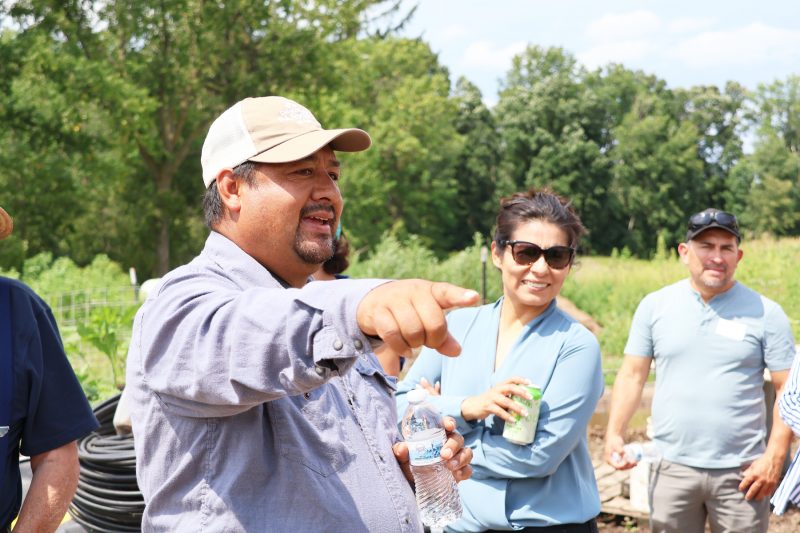Note: This is the 7th installment in the 12-part “A Sense of Where You Are” series.
Here’s some troubling context in the land of plenty: in 2023, 18 million U.S. households were food insecure at some time during the year, according to the USDA. That figure is up from 17 million in 2022. Food insecurity is defined as a situation where people can’t access the sustenance they need to live their fullest lives. In short, these are people who simply aren’t getting enough to eat. It’s a problem that’s more common in rural communities; such areas comprise less than two-thirds of all U.S. counties, but nine out of 10 counties with the highest food insecurity rates are rural, says Feeding America.
Meanwhile, there are plenty of farmers who are willing and able to produce food for local eaters in their communities, but who are stymied by a marketing and distribution system that’s structured around commodities like corn and soybeans. This troubling gap between farmers and eaters was the focus of attention during an August field day on Rodrigo Cala’s farm in western Wisconsin’s Barron County.

“In rural communities it’s difficult to get really healthy food,” said Cala. “We need to find a way to help low-income families get access to organic food, natural food.”
That’s why Cala, who raises produce, chickens, hogs, and sheep, is participating in a program that’s trying to reduce some of that food insecurity in rural areas while supporting farmers who churn out produce, meats, and value-added products. The Wisconsin Local Food Purchase Assistance Program pays farmers a fair price for their production, and then distributes that food to local food pantries and food banks. Called LFPA for short, versions of the initiative exist in other parts of the country, and are often structured around a partnership between state departments of agriculture and farm and food nonprofits. The USDA administers the program, which is funded by the federal American Rescue Plan.
In Wisconsin, the program has been up and running for two years and is led by the Department of Agriculture, Trade, and Consumer Protection, in collaboration with Marbleseed, the Wisconsin Food Hub Cooperative, and the Wisconsin Farmers Union. In 2024 alone, 125 farmers from throughout the state sold $1.8 million worth of food through the program.
Cala sells produce and pork through the LFPA, and said it now accounts for about 20% of his farm’s income. Since the program picks up the food at the farm, it helps alleviate two major headaches for farmers: marketing and transportation.
One of the farmers attending the field day was Mike Lenz, who, along with his wife, Jody, operates Threshing Table Farm in Star Prairie, Wis. Like Cala, the Lenzes have been selling produce through the LFPA program the past two years.
Lenz said being involved with the program has allowed them to employ at least four more seasonal employees, which means more money is circulated in the community.
“The money stays local to our area and the produce stays local to our area,” he said. “It gives me a lot of hope, actually.”
Brian DeVore edits the Land Stewardship Letter and produces the Ear to the Ground podcast.
Give it a Listen
- Ear to the Ground 360: Food Bank Booster (Rodrigo Cala & Mike Lenz)
Installments in the ‘A Sense of Where You Are’ Series:
- Introduction to the Series: A Sense of Where You Are
- Red Dresses & Magic Management
- In the Blood
- Seeking Signs of Life
- Forest for the Trees
- The Quickening
- Food Bank Booster
- First Things First
- The Big Picture
- The Snowball Effect
- 7 Years Later
- Against the Grain